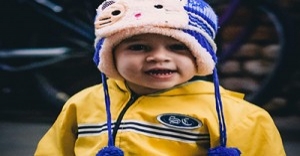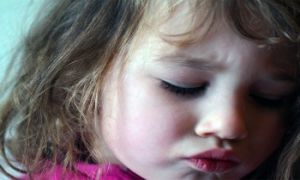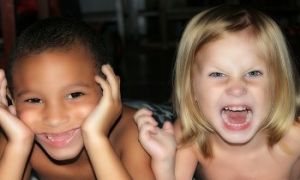

This template is used as a checklist to attach to documentation with a list of all the sub-outcomes for each of the EYLF Learning Outcomes Version 2.0.
The EYLF Learning Outcomes are broad and observable. They acknowledge that children learn in a variety of ways and vary in their capabilities and pace of learning. Children’s learning is ongoing acknowledge that children learn in a variety of ways. The following article provides practical examples of each individual learning outcome that children will progress towards in different and equally meaningful ways.
The EYLF Outcomes Meanings and Examples provide detailed meanings for each of the 5 learning outcomes as well as examples of how each learning outcome can be implemented into practice.
EYLF Outcomes In Action provides examples of how each learning outcome can be demonstrated within the learning environment. These are great to display to show how children and Educators are actively engaging in each learning outcome.
This template is used by Educators for observations. This template links to the sub-outcomes of Learning Outcome 5 - Children Are Effective Communicators.
This template is used by Educators for observations. This template links to the sub-outcomes of Learning Outcome 4 - Children Are Confident And Involved Learners.
To support children achieve learning outcomes from the EYLF Framework Version 2.0, the following list gives educators examples of how to promote children's learning in each individual learning outcome. These can be used when assessing children's learning, critically reflecting on the experiences planned, strategies to implement for each learning outcome and more. It also encourages and promotes each individual outcome throughout the early childhood setting.
This template is used by Educators for observations. This template links to the sub-outcomes of Learning Outcome 3 - Children Have A Strong Sense Of Wellbeing.
This is a guide for educators on what to observe under each sub-learning outcome from the EYLF Framework Version 2, when a child is engaged in play and learning. Educators can plan experiences for the curriculum and for individual learning and gain an understanding of how children can achieve each individual outcome.
THE EYLF Outcomes and Children Achievement Posters is a guide for educators on how children can achieve under each sub-learning outcome of the EYLF Learning Outcomes Version 2.0. When evaluating individual and group experiences under a particular outcome, educators can use this to see if a child has achieved each outcome. Educators can also plan experiences for the curriculum and for individual learning and gain an understanding of how children can achieve each individual outcome.
 As an Educator in Australia, your pay rate falls under the Children’s Services Award 2010. This award states the minimum amount that an employer can… Read More
As an Educator in Australia, your pay rate falls under the Children’s Services Award 2010. This award states the minimum amount that an employer can… Read More
 When working as a qualified Early Childhood Teacher (with a university degree) within a service, your rate of pay will come from the Educational Services… Read More
When working as a qualified Early Childhood Teacher (with a university degree) within a service, your rate of pay will come from the Educational Services… Read More
 When working as a Diploma Qualified Educator your pay rate is from the Children's Services Award 2010. This Award states your minimum rate of pay… Read More
When working as a Diploma Qualified Educator your pay rate is from the Children's Services Award 2010. This Award states your minimum rate of pay… Read More
 When working as a Cert 3 Qualified Educator, your pay rate is from the Children's Services Award 2010. This Award states your minimum rate of… Read More
When working as a Cert 3 Qualified Educator, your pay rate is from the Children's Services Award 2010. This Award states your minimum rate of… Read More
 Educational Leaders play a crucial role in their early childhood service by ensuring that the educational program aligns with best practices and supports the holistic… Read More
Educational Leaders play a crucial role in their early childhood service by ensuring that the educational program aligns with best practices and supports the holistic… Read More
 With the new national child safety reforms kicking in on 1 September 2025, early childhood services like yours have a real opportunity to lead the… Read More
With the new national child safety reforms kicking in on 1 September 2025, early childhood services like yours have a real opportunity to lead the… Read More
 In early childhood education and care, ratios are more than a technicality—they are a frontline safeguard. Every child deserves responsive supervision, emotional connection, and developmental… Read More
In early childhood education and care, ratios are more than a technicality—they are a frontline safeguard. Every child deserves responsive supervision, emotional connection, and developmental… Read More
 Here’s a comprehensive Mobile Phone and Smart Watch Policy tailored for early childhood education and care (ECEC) services in Australia, aligned with the latest 2025… Read More
Here’s a comprehensive Mobile Phone and Smart Watch Policy tailored for early childhood education and care (ECEC) services in Australia, aligned with the latest 2025… Read More
 The Sea of Fish Challenge is a national initiative that invites children, educators, families, and communities to create and display fish artworks as a symbol… Read More
The Sea of Fish Challenge is a national initiative that invites children, educators, families, and communities to create and display fish artworks as a symbol… Read More
 Cold weather play is incredibly beneficial for early childhood development! It helps children build resilience, strengthen their immune systems, and develop essential motor skills. Here’s… Read More
Cold weather play is incredibly beneficial for early childhood development! It helps children build resilience, strengthen their immune systems, and develop essential motor skills. Here’s… Read More

Saying sorry is among the earliest lessons in interpersonal behaviour that children learn when growing...
See more...
International Kite Day is held on January 14th, 2024. The following provides a list of...
See more...
The following lists the sub outcomes, examples of evidence when children can achieve each sub...
See more...© 2009-2025 Aussie Childcare Network Pty Ltd. All Rights Reserved.

